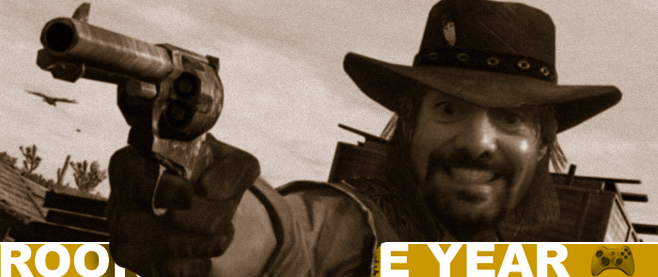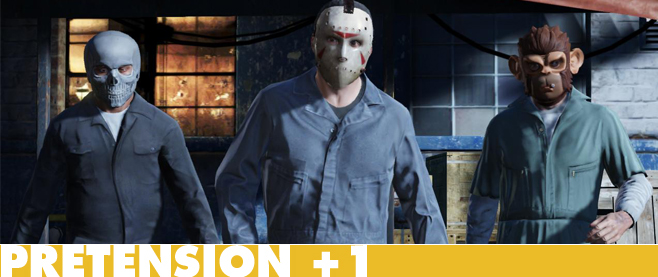
How to support videogames in 2019
If you’ve so much as coughed near the videogame industry this past week, you will likely have heard about Randy Pitchford, CEO of Gearbox, a man in the videogame industry whose volatile nature you can experience at any point in time, and not only if someone points a camera at him (see: Playing Hard, the Netflix documentary about For Honor’s development).
Randy Pitchford makes himself PR. How he reacted to a USGamer article clarifying that Borderlands 3 would have microtransactions is infinitely more entertaining to readers than the announcement itself, and so is the investigation that has been launched into an assault claim made by former Claptrap voice actor David Eddings. This, and previous claims of Pitchford possessing a USB drive with child pornography sound horrible, but now seem par for the course whenever someone clashes with him, the magnitude of such spats somewhat befitting a person who likes to lead his arguments in public.
But whenever you do that and an outlet or Youtuber inevitably reports on it, especially during the lead-up to the release of your game, this is PR. Chances are we would still care even Borderlands 3 hadn’t just been announced, but these reports are particularly widespread because of Borderlands 3 and met with a certain fervor because of it. That bad PR is also PR isn’t new, but whenever we do encounter such news there is an uptake in discussions of whether we can still support the art if we are morally opposed to the way it was created or the figure we credit with creating it.
I do believe it’s absolutely possible to end up on two opposing but equally valid sides of the coin with this. The last time the discussion came up, when Rockstar’s overtime policies on Red Dead Redemption 2 came to light (again, after similar reports surfaced after the completion of RDR), some certainly opted to no longer support the game, while others argued that if you didn’t support the game in spite of the conditions it was made under, you’d hurt everyone who went through the effort in the first place. In the beginning I thought of this take as slightly lukewarm, as the success of a product doesn’t determine whether or not workers get paid, but of course working on a successful game as opposed to an unsuccessful one means something completely different for future employment, and not just in an industry thoroughly obsessed with metacritic scores. It’s always easier to find a reason to buy a good game that was made under bad conditions than a product that ultimately fell apart under them, say Overkill’s The Walking Dead. Someone else will make a sufficiently similar but more enjoyable zombie game, too, but entire companies build their name on their IPs, so if you want that game, you can’t just jump to an ethically produced alternative, because the gaming industry is yet to provide the sheer volume of its favorite comparative industries film and literature.
It’s just as easy for me to say that I’ve yet to enjoy a game from a studio with demonstrably terrible leadership and questionable behavior by the CEO. It’s a giveaway that the CEOs you read about for outbursts and arguing with the media tend to sound very self-important, when their behavior can be seen as a giveaway for what working under them is like. Sure, I’m very grateful for my team, I couldn’t have done it without them, but let’s talk more about my vision. Media outlets tend to encourage that, often even unconsciously, because so often you only have one figurehead to talk to, and by the time the curtain of the NDA lifts, we’ve moved on to different things. We don’t know what the departure of an important artist means to a project, or what would’ve happened if someone on a terrible project would’ve had enough say to stop a decision from being made that internally everyone knew wasn’t a good idea. We hear these things after the fact, after the sales numbers, the highest entity in capitalism, have already told leadership whether they were right or not. I don’t endorse the argument that anyone who doesn’t like working under bad conditions can leave – in practice it’s never that easy, and if the problem is prevalent across an industry, where would you go?
When Randy Pitchford accused USGamer of putting a clickbait headline (by the way, this is not how clickbait works, the entire subject is clearly visible from the headline), he believed himself so right that he was ready to argue over it. It is an option to say “I could’ve worded that better”, instead Pitchford demonstrated that disagreeing with him was an act of willfully misunderstanding his intentions. Sometimes however, intentions don’t matter. I’m sure that very few artists’ intentions are bad, which leads them to repeat that making a creative product is just a difficult process, to the point that we believe that working in the videogame industry you know what you’re getting into and will be able to offset the hard times with passion.
In an industry as dependent on team effort as the videogame industry you will always find a reason to support a game, either because you value the creative input of the CEO or creative director or because you do so in spite of them. Personally for example I’m terribly attached to the Dragon Age series and want Dragon Age 4 to do well, but I see it as telling that so many of the writers responsible for what I’ve enjoyed over the years, people who publicly received their due, have left the company. This is the opposite way of acknowledging the work of individuals above the achievements of a team, at the same time I don’t believe the success of a creative product can only be replicated by its creator. Dragon Age can still work, just as Borderlands can work without Pitchford, but as a consumer I may only have the power to influence the position of one of these two. As soon as you see that a studio or an individual has a track record of a certain kind of behavior, it’s on you to act – yes, vote with your wallet, if you may. If you still don’t want to do that, I’m not your boss, stating your concerns is another valid method. The power user believe a review bomb to have can be used to positive effect, too.
As a critic, I’m trying to learn enough, ask enough questions and listen closely enough to speak not to consumer, but to creators. It’s not my task to tell you what to buy and enjoy, but I hope to reach creators and readers with awareness of their taste and tell them why I think something works or not, to offer a different perspective as someone who is attached to the experience in their own way, but not attached as a creator. You can often tell if a game has been affected by its development, and even if you can’t, you might be able to support or soothe fears the developers already had when they were making something. I know there are people behind the figurehead, people who are listening even when leadership might already see its methods vindicated. At the same time we should always be careful not to attribute success to a single person either. Meanwhile I’m hoping that we won’t always hear the bad news after the fact, and find the will make the “sacrifice” to not support a game that was made under reprehensible circumstances, as doing that as that will be a way to support its makers in the long run if karma is worth anything.





